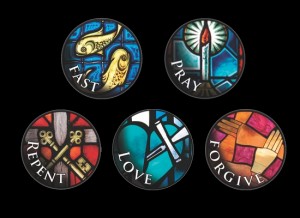 Both Pope John Paul II and Pope Benedict XVI challenged the world in general and the church in particular to pay attention to a human tendency to fall into a moral relativism. By this, they meant that it is easy, in our modern world, to start thinking that any moral choice is as good as any other moral choice. As our modern world has become more and more secularized – as the choice to be a person of faith becomes seen as simply one choice among others, many people find it difficult to say that there are definite moral norms. It is harder to say that THIS is right or wrong when many people of good will disagree on that issue. These past popes saw this playing out particularly in the area of moral decision-making, but Pope Francis reminds us that this tendency also pertains to other areas of life.
Both Pope John Paul II and Pope Benedict XVI challenged the world in general and the church in particular to pay attention to a human tendency to fall into a moral relativism. By this, they meant that it is easy, in our modern world, to start thinking that any moral choice is as good as any other moral choice. As our modern world has become more and more secularized – as the choice to be a person of faith becomes seen as simply one choice among others, many people find it difficult to say that there are definite moral norms. It is harder to say that THIS is right or wrong when many people of good will disagree on that issue. These past popes saw this playing out particularly in the area of moral decision-making, but Pope Francis reminds us that this tendency also pertains to other areas of life.
In particular, Francis exhorts us to think about our spirituality. In a world where being a religious believer can be viewed with suspicion or even ridicule by non-believers, it is easy to fall away from our practice of our faith. Living out our faith in a robust spiritual life can sometimes seem too difficult, too time-consuming, too old-fashioned. Although he is speaking to pastoral workers (those who work directly for and in the church), Francis’ exhortation away from a practical relativism can easily be applied to most of us: “This practical relativism consists in acting as if God did not exist, making decisions as if the poor did not exist, setting goals as if others did not exist, working as if people who have not received the Gospel did not exist” (§ 80). This is a profound call to attentiveness for all Christians. If we want to take our faith seriously, we need to take all of these various constituencies into account.
As we live our lives, do we consider what God wants? Do we seek to discern God’s will in our lives and do we seek to live our lives according to that will of God that we have discerned? Does God even factor into our thinking as we go about our daily lives?
Do we ask how our actions will impact the poor? Do we think about those who are materially poor, downtrodden, excluded from full participation in society, or thought of as second-class citizens? And more importantly, do we live our lives in a way that helps to alleviate the suffering of these poor? The Biblical witness reminds us that God opts preferentially for the poor. Do we?
Do we consider the impact that our actions will have on others? Do we live as if we are the only ones who matter? Or do we live as if my decisions don’t have anything to do with those around me in my family, in my community, in the world? How can we make choices in a way that promotes the common good?
Do we ever consider those who do not know the Gospel? Do we ever seek to share our love of God with those we meet in our everyday lives? Do we live our lives in a way that demonstrates the joy of being a Christian so that others will be drawn in by us?
These are profound challenges for all of us as we seek to more and more consistently and faithfully live out our Christian faith. As we approach Holy Week, let us consider how we can reject this kind of relativism and live lives that are full of joy in the faith. Let us strive to live out our faith and joy so that those around us will know that we have chosen faith.

